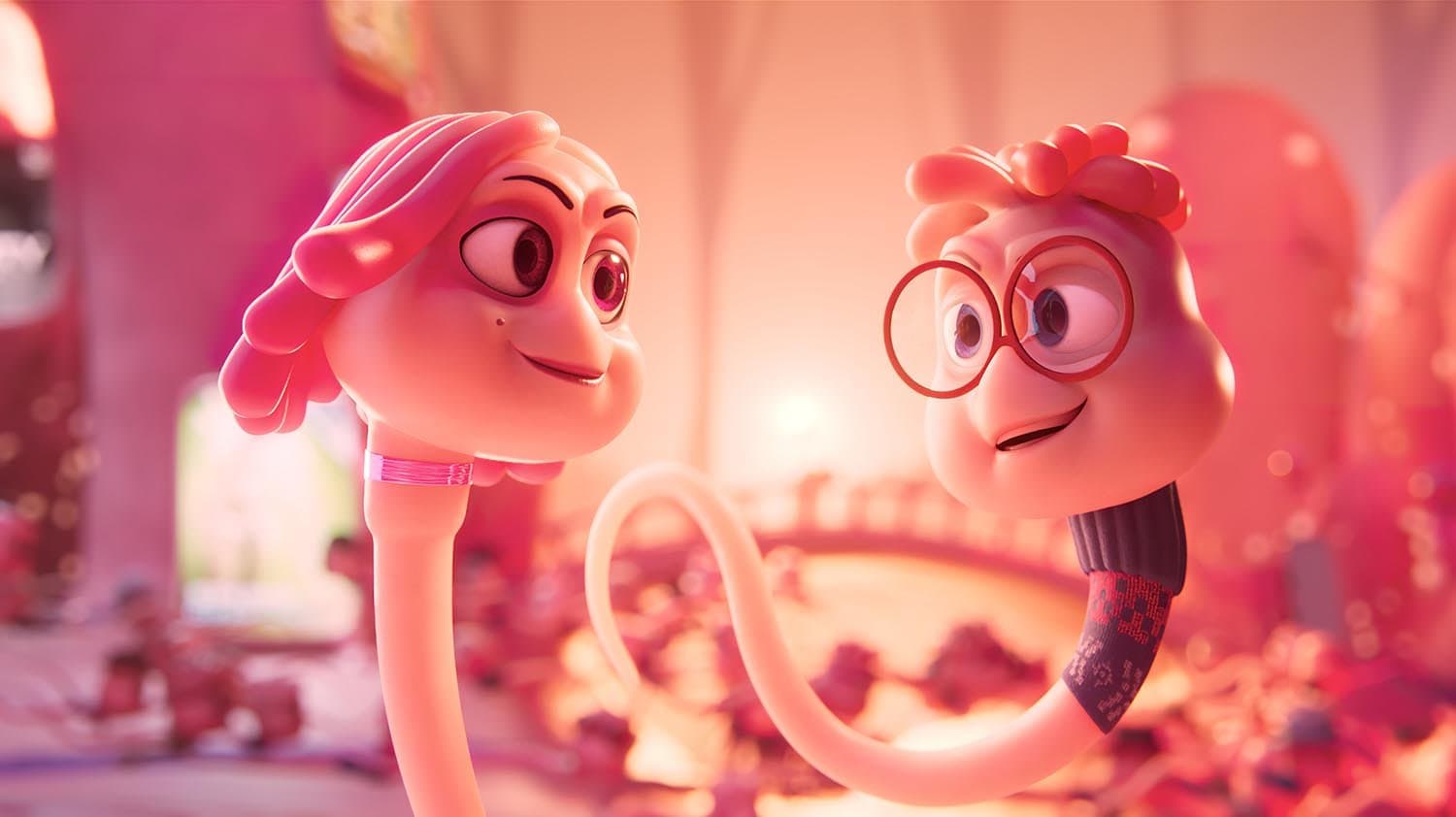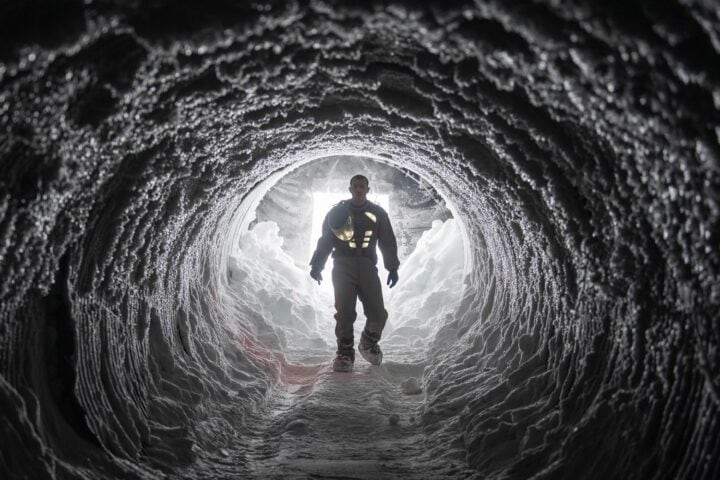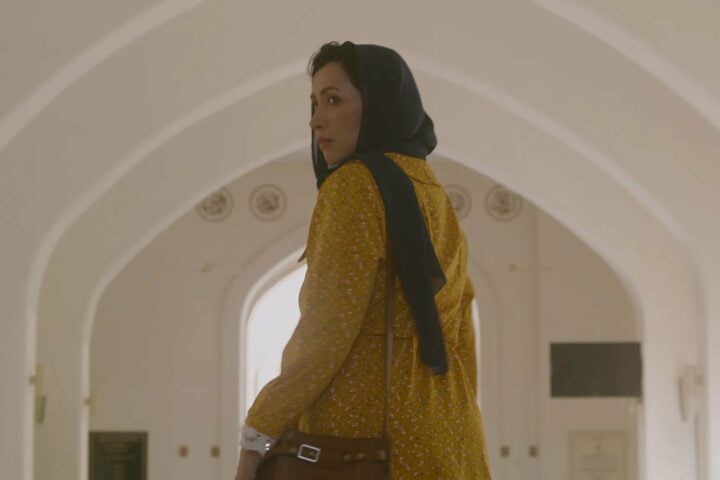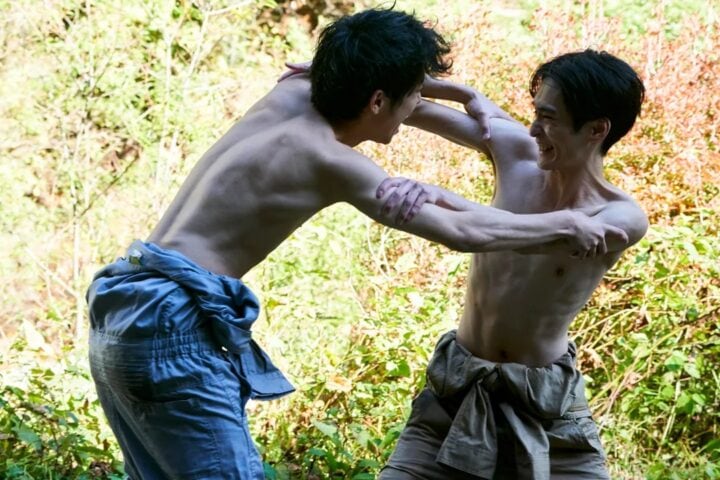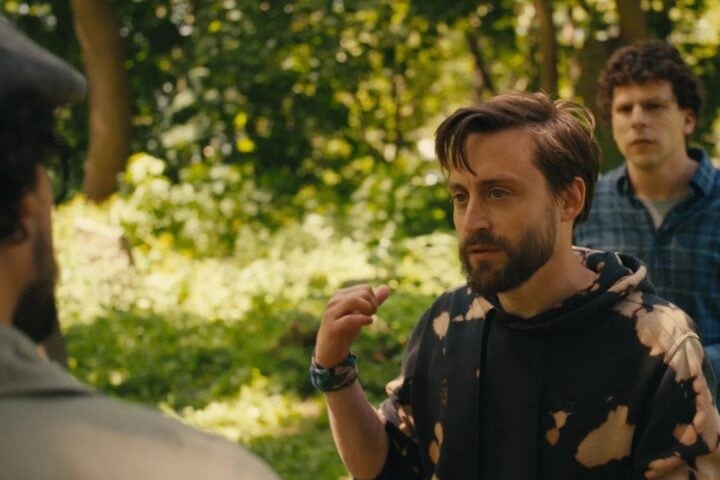An ominous placard hangs at one of the International Film Festival Rotterdam’s most charming venues this year. It reads, in Dutch, “Cinerama must stay,” inviting us to sign a petition to keep the municipality from demolishing the quaint Kinepolis Cinerama in central Rotterdam in order to make room for a more profitable enterprise.
The message stands in great contrast to the festival’s congenial atmosphere, for spelling trouble in an otherwise stress-free cocoon run with impeccable logistical prowess. For IFFR gives one that most precious, and perhaps naïve, feeling that even the most audacious curatorial eye would be immune to a profit-hungry system that surely exists everywhere else in the world.
The festival’s curatorial boldness has never felt so necessary, in the face of the American descent into some medieval hellhole that’s horrified Europe. Not that the region is immune to similar kinds of political projects, but in Rotterdam the movie theater always seemed to be a sanctuary where puritanism goes to die so the pleasures of experimentation can flourish.
Spermageddon certainly gives puritanism the finger. Directed by Tommy Wirkola and Rasmus A. Sivertsen, the deliriously spirited Norwegian animated film is set in a universe inside nerdy teenager Jens’s ball sack that’s entirely peopled by anthropomorphized spermatozoa. These cummy beings (the film is full of cheeky puns) are trained from a very early age to be ready for the first ejaculation of their human host, at which point the little creatures compete to become the one, or the few, that will reach a woman’s egg and fertilize it.
It’s a brutal race with no room for ethical behavior. Except that one of the spermatozoa, Simen, starts to question the prospect, and the purpose, of leaving their host’s scrotum to try their luck in a mad rush from which most will perish. The film could have given in to infantile jokes and gratuitous crassness. Instead, the filmmakers craft an unprecedented exploration of the innards of the human body, rife with playful metaphors and lacking all shame. Spermageddon is also a hilarious portrait of heterosexual relations in Northern Europe. It’s at once a parody and an ode to story worlds where male protagonists are anything but girl-getting heroes.
Some may respond to Spermageddon’s scatological focus defensively, but at Rotterdam the audience seemed naturally sold by the freedom with which Wirkola and Sivertsen’s film joyously explores places where the cinematic camera has never gone before. At one point, Simen and his best friend, Cumila, along with other spermatozoa, end up in Jens’s sex partner’s anal cavity because he’s too sexually inexperienced to be able to tell a vagina apart from a butthole. Once in the fecal maze, the creatures swim in search of a urine-filled exit that may lead them to the egg—guided by the knowledge Simen amassed by going rogue and daring to study the human body holistically. But the spermatozoa are only allowed to pass if one of them accepts to give an E. coli bacteria a big wet shitty kiss. At least one of them is happy to oblige!
In Don’t Leave the Kids Alone, Mexican director Emilio Portes brings us back to the analog world of the late 20th century, when screen possibilities were limited and children had to be a little more creative about manifesting their violent thoughts. As such, Portes structures this horror film around the sharpness of objects and the atavistic anxiety they produce: a blood-red rotary telephone, a bow and arrow, a flimsy leash around a vicious dog’s neck.
These are the props-cum-toys surrounding brothers Matías (Juan Pablo Velasco) and Emiliano (Ricardo Galina) in their new house—whose ghosts seem particularly active on a stormy night—as they wait for their mother, Catalina (Ana Serradilla), to come back home from a party. Another crucial element that mediates the brothers’ risky play, teetering at the brink of brotherly murder over the mother’s love and the blame for the father’s demise, is a brown bottle containing the pills that Emiliano must take every night, or else.
Unlike most cinematic representations of children, so often typified by a sexless innocence, the young boys here seethe with neediness, evilness, and ambiguity. The scares are always accompanied by some deep-seated emotional stake involving the bargaining for love that takes place in a family. The penchant for the most perverse forms of violence isn’t driven by narrative necessity but the perhaps universal desire to be anointed not only the mother’s favorite child but her only child. Here a kid is capable of begging for a brother’s love and saying that he will take his own life “to make mom punish you forever” in the same scene.
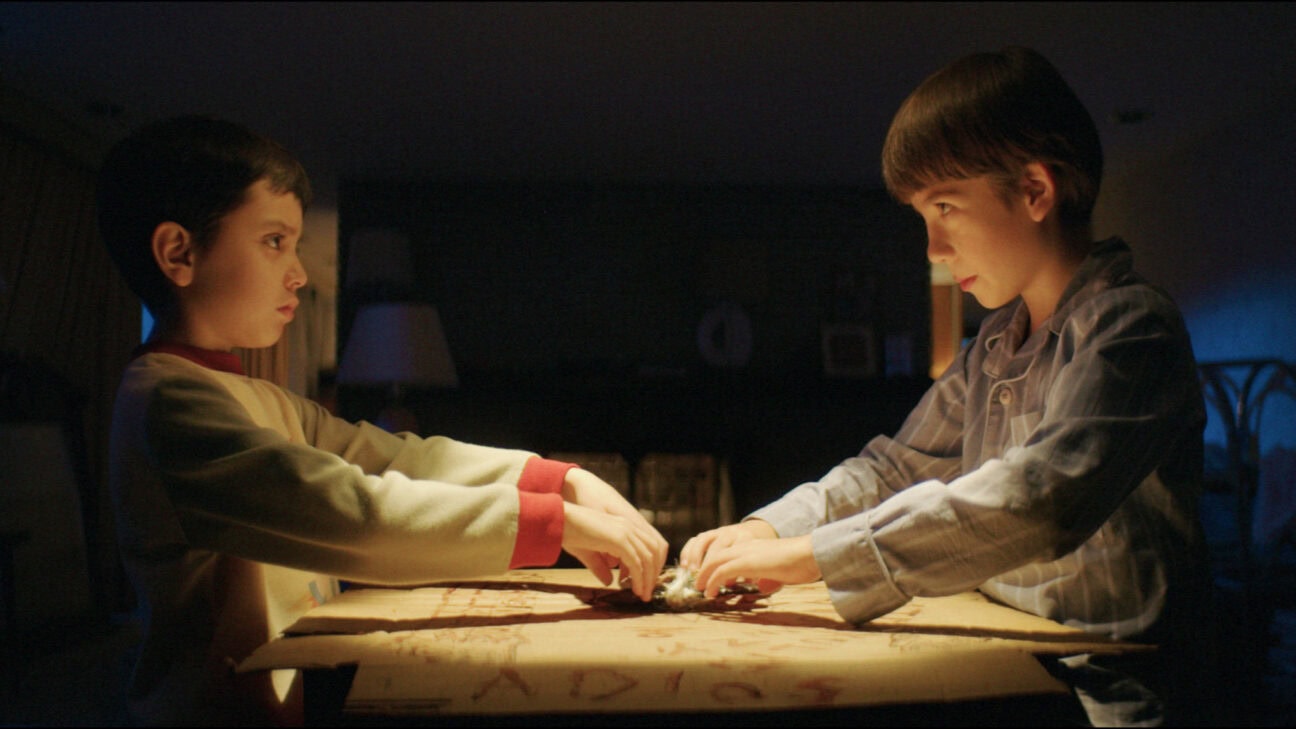
This uncanny film cloaks its brand of horror with a thick, political valence, but even as it sets out to refuse age-old myths about kids (namely, their presumed purity), it’s always committed to whipping up an entertaining genre stew. Its usage of genre tropes is confident and pleasurable in large part because of the way Portes and co-writer Alan Maldonado portray a child’s psyche so multi-dimensionally, preserving their constitutive contradictions and evil impulses.
Writer-director Li Dongmei’s raw and melancholy Guo Ran also deals with family disfunction. The chips are down for Yu (Manxuan Li) and her boyfriend (Yitong Wang). Silence reigns in their small apartment. A pregnant Yu wallows in what we could only call feminine waiting, as her boyfriend plays on the computer with headphones on. He’s all but closed off from having to respond to her demands, or desires, which she doesn’t bother to voice anyway.
It’s only when Yu notices blood in her urine that her boyfriend recognizes her presence—and as a sort of inconvenience. The miscarriage that follows only accelerates the fizzling out of a relationship that barely qualified as one. It’s difficult to imagine how caring for a baby wouldn’t have exacerbated the distance between them—a distance that seems to suit the boyfriend just fine but gnaws at Yu’s bones. The death of the child, then, might as well have been a blessing in disguise—and it’s one that Yu’s niece predicts. At the start of the film, she tells her aunt that Guo Ran, the baby-to-be’s name, will die. It’s an out-of-the-blue comment that puzzles Yu: Is it jealousy on the part of the niece, an ominous presaging, or proto-feminist yearning?
Li’s film is especially notable for the stabbing ennui of this final sequence, which includes a sudden cut that implies feminine existence to hinge on one’s eventual abandonment. This traumatic curse becomes more evident when we learn that Yu’s own mother died giving birth to her little sister. But trauma can be transformative too. So Yu goes on, and musters up enough courage to ask the nurse who helped operate on her after the miscarriage what the hospital does with its dead fetuses. She’s like a child becoming an adult, hell-bent on discovering if there’s really a heaven—disarming an old, nagging riddle—instead of accepting things as they come.
Stefan Djordjevic writes, directs, and stars in the quietly magnificent Wind, Talk to Me, for which he cast members of his own family to play the roles of his character’s grandparents, brother, aunt, nephews and nieces. Stefan (Djordjevic) returns to the family home where his mother, Negrica, recently died from cancer to finish a film he began shooting with her before her passing. There, he immediately brushes up against death once more, accidently driving over a dog, whose wound he then tries to heal. He seems committed, in the meantime, to leaving his own wounds unarticulated. Except, that is, when he addresses them through the filmmaking process, or in the rare instances when he allows himself to be vulnerable to his brother.
Wind, Talk to Me unfolds less through plot than a situation so visceral that the slightest moving of a leaf can feel like a poetic earthquake—a recurring imagery in the film that justifies its title. The dog, and the proxy figure it represents vis-à-vis the mother’s absence, gives this otherwise plot-less film sturdy narrative pillars as Stefan injures the animal, then nurses it delicately with honey. He eventually yells at the dog as ruthlessly as when the dog eats the mother’s diary, which Stefan hadn’t yet had the courage to read. But tenderness quickly replaces aggression.
Djordjevic’s film ends with a monologue as poetic, and philosophical, as the one that closes Nuri Bilge Ceylan’s About Dry Grasses. Except here it is more like a dialogue between a suffering mother and the inquisitive son who uses the camera to capture what time will take away in due course, and with no tenderness at all. She tells him that the wind produces miracles—if one wishes it to. “Not think, but wish.” It’s a mesmerizing scene through which the film announces that to meet those who are free is an antidote to loneliness. And that learning to enjoy is life’s ultimate purpose and an ever unteachable skill. To enjoy.
International Film Festival Rotterdam runs from January 30—February 9.
Since 2001, we've brought you uncompromising, candid takes on the world of film, music, television, video games, theater, and more. Independently owned and operated publications like Slant have been hit hard in recent years, but we’re committed to keeping our content free and accessible—meaning no paywalls or fees.
If you like what we do, please consider subscribing to our Patreon or making a donation.

